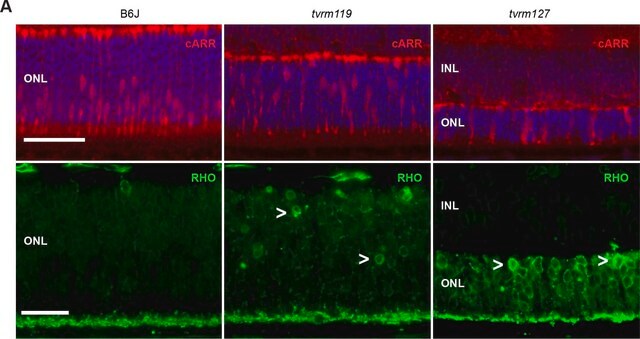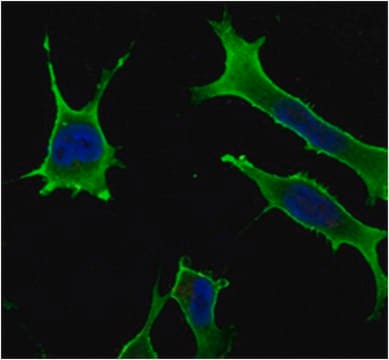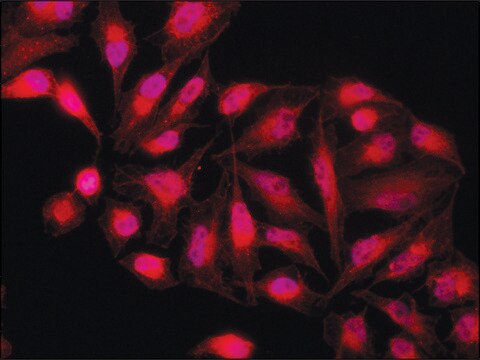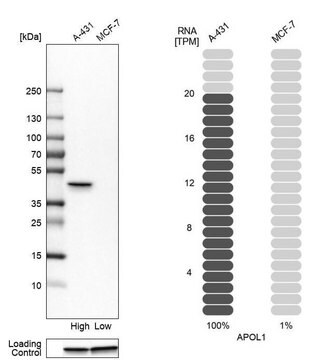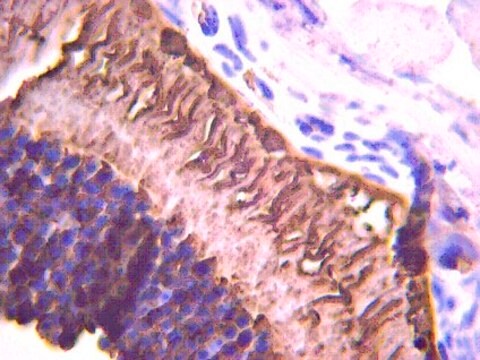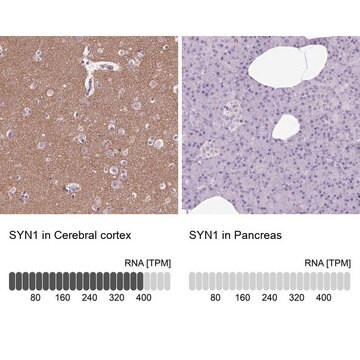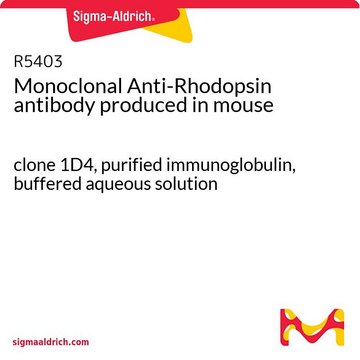MABS385
Anti-APOL1 Antibody, clone 1D4
ascites fluid, clone 1D4, from mouse
Synonim(y):
APOL, APO-L, APOL-I, Apolipoprotein L1, Apolipoprotein L, Apolipoprotein L-I
About This Item
Polecane produkty
pochodzenie biologiczne
mouse
Poziom jakości
forma przeciwciała
ascites fluid
rodzaj przeciwciała
primary antibodies
klon
1D4, monoclonal
reaktywność gatunkowa
human
metody
western blot: suitable
izotyp
IgG1
numer dostępu UniProt
Warunki transportu
wet ice
docelowa modyfikacja potranslacyjna
unmodified
informacje o genach
human ... APOL1(8542)
Opis ogólny
Immunogen
Zastosowanie
Jakość
Western Blotting Analysis: A 1:500-2,000 dilution of this antibody detected APOL1 in human plasma.
Optimal working dilutions must be determined by end user.
Opis wartości docelowych
Komentarz do analizy
Human plasma lysate
Nie możesz znaleźć właściwego produktu?
Wypróbuj nasz Narzędzie selektora produktów.
Kod klasy składowania
12 - Non Combustible Liquids
Klasa zagrożenia wodnego (WGK)
nwg
Temperatura zapłonu (°F)
Not applicable
Temperatura zapłonu (°C)
Not applicable
Certyfikaty analizy (CoA)
Poszukaj Certyfikaty analizy (CoA), wpisując numer partii/serii produktów. Numery serii i partii można znaleźć na etykiecie produktu po słowach „seria” lub „partia”.
Masz już ten produkt?
Dokumenty związane z niedawno zakupionymi produktami zostały zamieszczone w Bibliotece dokumentów.
Nasz zespół naukowców ma doświadczenie we wszystkich obszarach badań, w tym w naukach przyrodniczych, materiałoznawstwie, syntezie chemicznej, chromatografii, analityce i wielu innych dziedzinach.
Skontaktuj się z zespołem ds. pomocy technicznej